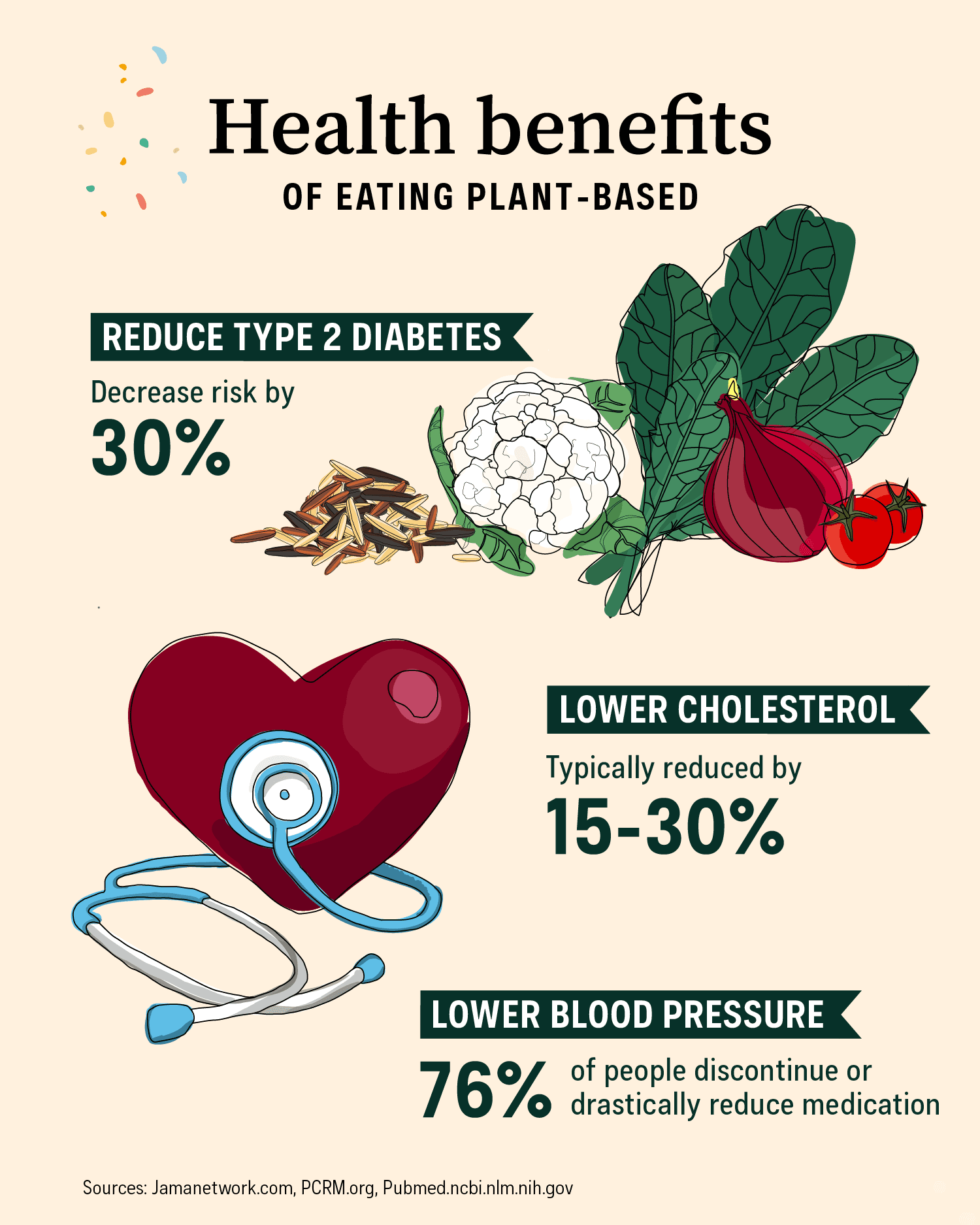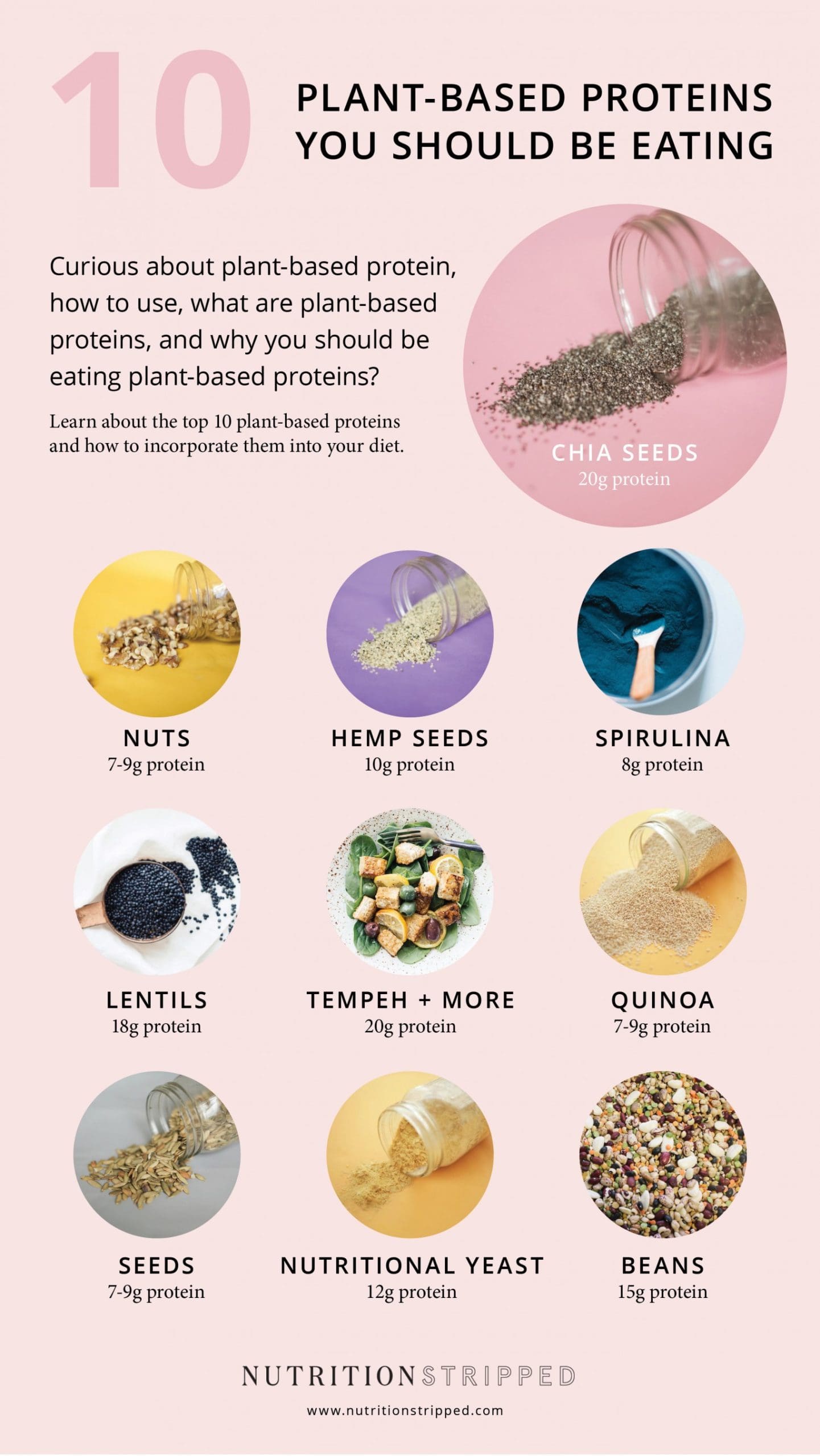In recent years, the popularity of veganism has surged as more and more people become aware of the impact of their dietary choices on their health. While the ethical and environmental implications of a plant-based diet have long been discussed, the potential health benefits of veganism are now gaining significant attention. Chronic diseases, such as heart disease, diabetes, and cancer, are among the leading causes of death globally, and evidence suggests that diet plays a crucial role in their development. As such, the role of veganism in preventing chronic diseases is being widely studied, and the results are compelling. This article aims to examine the potential impact of a plant-based diet on overall health and its ability to prevent chronic diseases. We will dive into the research and explore the specific nutrients and compounds found in a vegan diet that may contribute to improved health outcomes and disease prevention. Furthermore, we will discuss the challenges and misconceptions surrounding veganism and address the question of whether a plant-based diet can truly improve health. Join us as we explore the potential of veganism as a powerful tool in the prevention of chronic diseases.
Plant-based diets decrease disease risk
Numerous studies have shown that following a plant-based diet can significantly reduce the risk of chronic diseases. A diet rich in fruits, vegetables, whole grains, legumes, and nuts provides essential nutrients and antioxidants that promote overall health and well-being. Research indicates that plant-based diets can lower the risk of cardiovascular disease, obesity, type 2 diabetes, and certain types of cancer. The high fiber content in plant-based foods helps maintain healthy cholesterol levels and promotes proper digestion. Additionally, plant-based diets are typically lower in saturated fats and cholesterol, further reducing the risk of heart disease. By adopting a plant-based diet, individuals can take a proactive approach to their health and reduce the likelihood of developing chronic diseases.

Veganism promotes whole food consumption
Veganism promotes the consumption of whole foods, which are minimally processed and retain their natural nutrients. Whole foods include fruits, vegetables, whole grains, legumes, nuts, and seeds. These plant-based foods are rich in vitamins, minerals, fiber, and antioxidants, all of which are essential for maintaining optimal health. By focusing on whole food consumption, vegans can ensure that their diet is nutrient-dense and provides a wide range of essential nutrients. This emphasis on whole foods also encourages individuals to avoid highly processed and refined foods that are often high in added sugars, unhealthy fats, and artificial additives. By choosing whole foods, vegans can improve their overall nutrition and reduce the risk of chronic diseases associated with poor dietary choices.
Benefits of reducing animal products
Reducing the consumption of animal products offers several benefits that contribute to improved health. By adopting a plant-based diet and minimizing the intake of animal-based foods, individuals can lower their intake of saturated fats and cholesterol. This can lead to a decreased risk of developing cardiovascular diseases, such as heart disease and stroke. Additionally, plant-based diets are generally higher in fiber, which promotes digestive health, regulates blood sugar levels, and may lower the risk of developing type 2 diabetes. Furthermore, choosing plant-based options can provide a wider variety of phytonutrients and antioxidants, which have been linked to reduced inflammation and a lower risk of certain cancers. By reducing the reliance on animal products and embracing a plant-based diet, individuals can enhance their overall well-being and reduce the likelihood of chronic diseases associated with a diet high in animal products.
Research supports veganism for prevention
Numerous studies have provided compelling evidence supporting the role of veganism in preventing chronic diseases. Research has consistently shown that a plant-based diet rich in fruits, vegetables, whole grains, and legumes can significantly reduce the risk of developing conditions such as obesity, hypertension, and cardiovascular diseases. For instance, a study published in the Journal of the American Heart Association found that individuals who followed a vegan diet had lower blood pressure and cholesterol levels compared to those consuming animal products. Additionally, research conducted by the American Diabetes Association demonstrated that adopting a plant-based diet can effectively manage and even prevent the onset of type 2 diabetes. These findings highlight the potential of a plant-based diet in promoting long-term health and disease prevention, reinforcing the importance of considering veganism as a viable dietary approach for improving overall well-being.
High-fiber intake protects against illnesses
High-fiber intake has been consistently linked to the protection against various illnesses. Multiple studies have shown that a diet rich in fiber can have a significant impact on reducing the risk of developing chronic diseases. Fiber plays a crucial role in maintaining a healthy digestive system, promoting regular bowel movements, and preventing constipation. Moreover, it has been associated with a lower risk of developing conditions such as colorectal cancer, cardiovascular disease, and type 2 diabetes. The consumption of fiber-rich foods, such as whole grains, fruits, vegetables, and legumes, can help regulate blood sugar levels, lower cholesterol levels, and promote satiety, making it easier to maintain a healthy weight. Incorporating high-fiber foods into a plant-based diet can provide numerous health benefits and contribute to overall wellness and disease prevention.
Plant-based proteins provide essential nutrients
Plant-based proteins offer a wide range of essential nutrients that are vital for maintaining optimal health. Unlike animal-based proteins, which often come with high levels of saturated fat and cholesterol, plant-based proteins offer a healthier alternative without compromising on nutritional value. Legumes, such as lentils, chickpeas, and black beans, are excellent sources of protein, fiber, folate, and iron. Nuts and seeds are also rich in protein, healthy fats, and micronutrients like magnesium and vitamin E. Additionally, soy-based products like tofu and tempeh provide a complete amino acid profile and are particularly beneficial for vegans and vegetarians. By incorporating plant-based proteins into a balanced diet, individuals can meet their daily protein requirements while reaping the benefits of other essential nutrients that contribute to overall well-being and prevent chronic diseases.

Veganism improves cardiovascular health
A growing body of research suggests that adopting a vegan diet can significantly improve cardiovascular health. A plant-based diet is naturally low in cholesterol and saturated fats, which are commonly found in animal products. These dietary factors are known to contribute to the development of heart disease, a leading cause of mortality worldwide. By eliminating or reducing the consumption of animal-based foods, individuals can lower their intake of harmful fats and cholesterol, thereby reducing the risk of high blood pressure, atherosclerosis, and other cardiovascular conditions. Furthermore, plant-based diets are typically rich in fiber, antioxidants, and phytochemicals, all of which have been associated with improved heart health. These plant-based compounds help to reduce inflammation, lower blood pressure, and improve blood lipid profiles. Incorporating a vegan diet as part of a comprehensive approach to cardiovascular health can have significant benefits in preventing chronic diseases and promoting overall well-being.
Incorporating vegan meals can benefit
Incorporating vegan meals can offer a range of benefits beyond cardiovascular health. Research suggests that a plant-based diet can be effective in preventing and managing chronic diseases such as type 2 diabetes and certain types of cancer. Plant-based diets are typically high in fiber, which aids in digestion and helps regulate blood sugar levels. Additionally, the abundance of antioxidants found in plant-based foods can help protect against oxidative stress and reduce the risk of cellular damage. Furthermore, adopting a vegan lifestyle can contribute to weight management, as plant-based diets tend to be lower in calories and fat compared to diets that include animal products. Overall, incorporating vegan meals into one’s diet can be a valuable step towards improving overall health and reducing the risk of chronic diseases.
In conclusion, the evidence supporting the role of veganism in preventing chronic diseases is growing stronger every day. While further research is needed, it is clear that a plant-based diet can have significant benefits for overall health and reducing the risk of chronic diseases. As healthcare professionals, it is important to educate ourselves and our patients about the potential benefits of adopting a vegan lifestyle and encourage them to make informed dietary choices for their well-being. Let us strive towards a healthier future for ourselves and our communities by considering the impact of our food choices on our health.

FAQ
What are the main chronic diseases that can be prevented or managed through a vegan diet?
A vegan diet can help prevent or manage various chronic diseases. Some of the main ones include heart disease, type 2 diabetes, high blood pressure, obesity, and certain types of cancer. By eliminating animal products and focusing on whole plant foods, vegans naturally consume more fiber, antioxidants, and beneficial nutrients. This can lead to lower cholesterol levels, improved blood sugar control, reduced inflammation, and weight loss. However, it’s important to note that a vegan diet is not a guarantee and other lifestyle factors also play a role in preventing and managing chronic diseases. Consulting with a healthcare professional is always recommended.
How does a plant-based diet contribute to reducing the risk of developing chronic diseases?
A plant-based diet contributes to reducing the risk of developing chronic diseases by providing a high intake of fiber, antioxidants, and essential nutrients while being low in saturated fats and cholesterol. Fiber helps to promote healthy digestion and reduce the risk of conditions like constipation, diverticulosis, and colorectal cancer. Antioxidants found in fruits and vegetables help to protect against cell damage and inflammation, reducing the risk of conditions like heart disease and certain types of cancer. Additionally, plant-based diets tend to be lower in saturated fats and cholesterol, which are associated with an increased risk of cardiovascular diseases. Overall, a plant-based diet can help promote better overall health and reduce the risk of chronic diseases.
Are there any specific nutrients that vegans need to pay extra attention to in order to prevent chronic diseases?
Yes, there are a few nutrients that vegans need to pay extra attention to in order to prevent chronic diseases. These include vitamin B12, omega-3 fatty acids, iron, calcium, and vitamin D. Vitamin B12 is predominantly found in animal products, so vegans may need to supplement or consume fortified foods to ensure adequate intake. Omega-3 fatty acids, particularly EPA and DHA, are commonly found in fish but can be obtained from plant-based sources like flaxseeds and walnuts. Iron, calcium, and vitamin D can be found in plant-based foods, but vegans should ensure they are consuming enough through a well-balanced diet or consider supplementation if necessary.
Can a vegan diet be equally effective in preventing chronic diseases compared to other dietary approaches, such as the Mediterranean diet?
Yes, a vegan diet can be equally effective in preventing chronic diseases compared to other dietary approaches, such as the Mediterranean diet. A well-planned vegan diet can provide all the necessary nutrients, including protein, vitamins, minerals, and healthy fats, while avoiding animal products that have been linked to chronic diseases. Research suggests that vegan diets can reduce the risk of heart disease, high blood pressure, type 2 diabetes, and certain types of cancer. However, it is important to note that the effectiveness of any diet in preventing chronic diseases also depends on other factors like overall lifestyle, exercise, and genetics.
What scientific evidence supports the role of veganism in preventing chronic diseases, and are there any limitations or controversies surrounding this topic?
Scientific evidence supports that a well-planned vegan diet can help prevent chronic diseases. Research shows that vegans have a lower risk of developing conditions like heart disease, high blood pressure, type 2 diabetes, and certain cancers. This is due to the higher intake of plant-based foods, which are rich in fiber, antioxidants, and phytochemicals. However, limitations and controversies exist. Some concerns revolve around nutrient deficiencies if the diet is not properly balanced, particularly in vitamin B12, iron, and omega-3 fatty acids. Additionally, there is ongoing debate regarding the long-term effects of a vegan diet, as well as potential biases in the research. Further studies are needed to better understand these limitations and controversies.















































